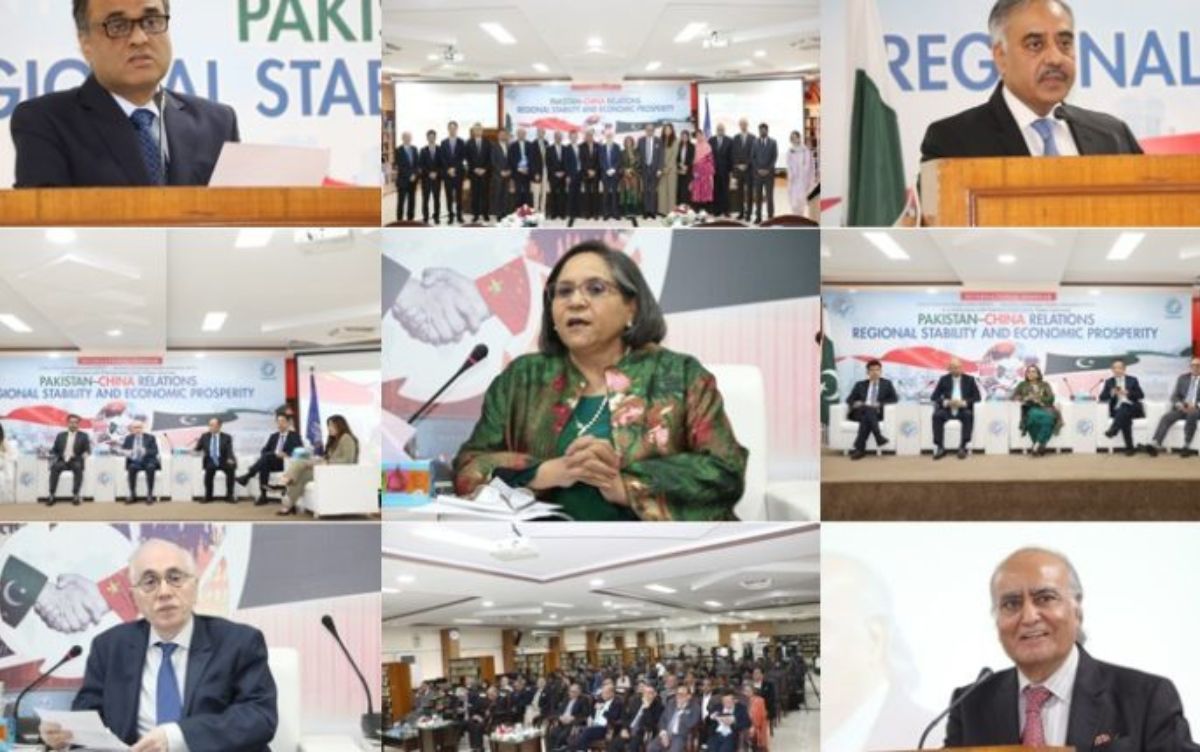ISSI Seminar Explores Regional Stability through Pakistan–China Partnership
At a seminar jointly organised by the China–Pakistan Study Centre (CPSC) at the Institute of Strategic Studies Islamabad (ISSI) and the Pakistan Study Centre at Fudan University, experts and policymakers reaffirmed that the China–Pakistan Economic Corridor (CPEC) remains a cornerstone of regional development and connectivity.
Speaking at the event titled “Pakistan–China Relations: Regional Stability and Economic Prosperity,” ISSI Director General Ambassador Sohail Mahmood highlighted that Pakistan–China relations, rooted in mutual respect and trust, have consistently weathered global and regional challenges. He noted that CPEC has reinforced Pakistan’s economic foundation and evolved into a key driver of cooperation across Asia.
 P.c. China Pakistan Economic Corridor
P.c. China Pakistan Economic Corridor
Ambassador Mahmood introduced the China–Pakistan Action Plan (2025–2029) as a forward-looking framework for collaboration in emerging sectors such as technology, green development, and digital innovation. He proposed establishing a China–South Asia Summit, mirroring China’s engagements with Central Asia and the GCC, to promote inclusive regional cooperation.
Ambassador Imran Ahmed Siddiqui, Additional Foreign Secretary for Asia-Pacific and the seminar’s chief guest, said that CPEC’s next phase will open up new avenues in artificial intelligence, biotechnology, renewable energy, and the digital economy. He added that the initiative complements Pakistan’s Economic Transformation Plan (URAAN) and aligns with the nation’s goal of achieving sustainable, technology-led growth.
During the security cooperation session, chaired by Ambassador Masood Khalid, participants explored mechanisms to enhance defence coordination. Dr Zahir Kazmi proposed developing CPEC resilience exercises and maritime safety networks, while Chinese scholars emphasised youth and academic partnerships as bridges for peace.
In the economic cooperation session, chaired by Ambassador Naghmana Hashmi, experts discussed expanding CPEC’s regional outreach. Dr Ashfaque Hassan Khan suggested creating SAECO Plus (China) to strengthen economic links with Afghanistan, Central Asia, Iran, and Azerbaijan. Dr Hassan Daud Butt encouraged focusing on renewable energy and digital integration to accelerate regional progress.
Chinese academics Dr Wang Shida, Prof Zhang Jiegen, and Dr Xie Chao pointed out untapped opportunities in manufacturing, agriculture, and community-based development projects. Prof Huang Yunsong of Sichuan University described the China–Pakistan Action Plan as a blueprint for future institutional collaboration and called for greater people-to-people exchange through scholarships and training.
In his closing remarks, ISSI Board Chairman Ambassador Khalid Mahmood reaffirmed Pakistan’s commitment to advancing peace, prosperity, and shared growth through stronger cooperation with China